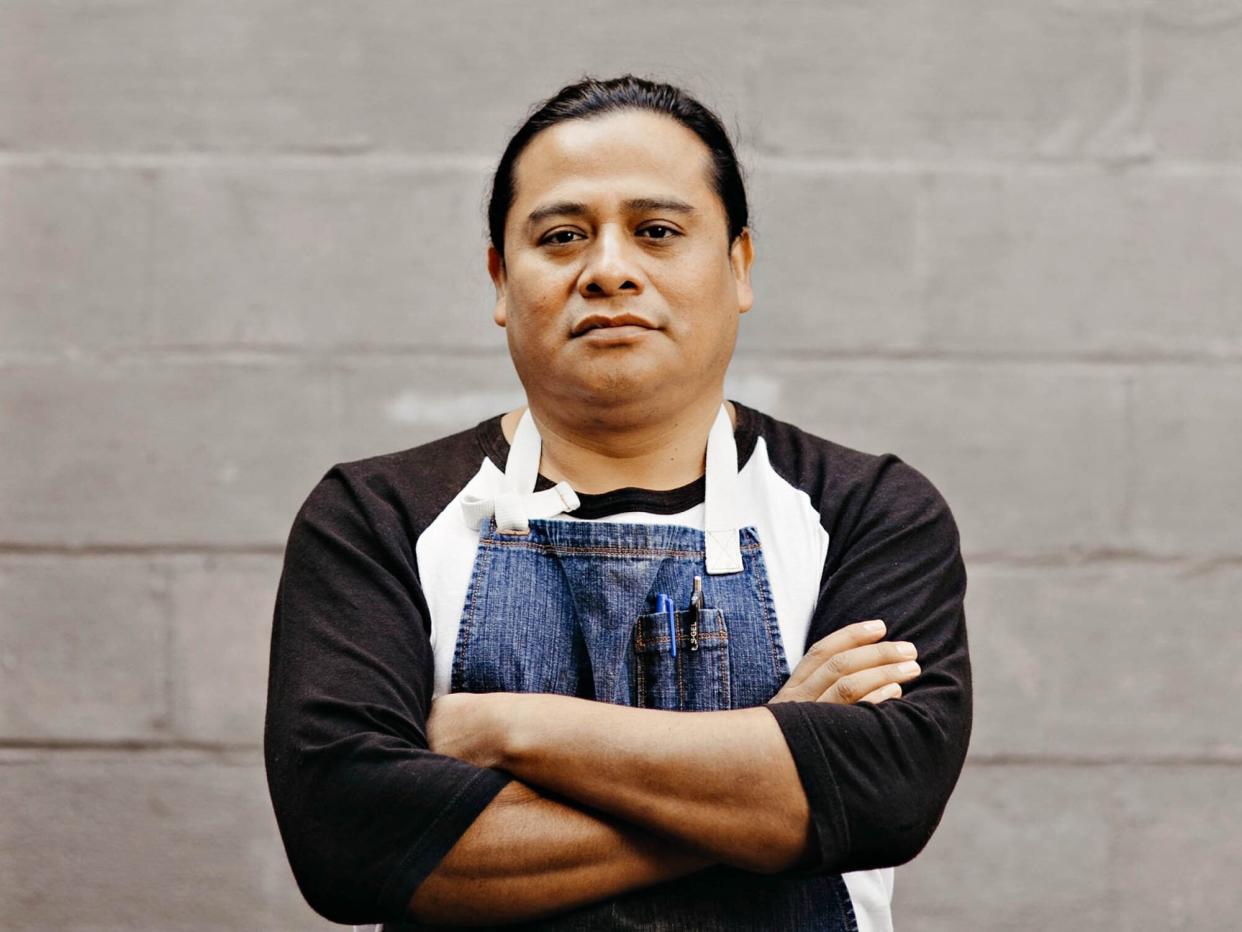F&W Game Changers: Ancestral Connections

Cara Totman
The I-Collective, a community of chefs, knowledge keepers, farmers, and artists from Native nations across the U.S., is at the forefront of a movement to uphold Indigenous culinary knowledge. A main focus of their work is devoted to achieving food sovereignty, or the right to access sustainable and culturally appropriate food. I-Collective's mission can be summed up in the four principles that the "I" in its name stands for: Indigenous, Inspired, Innovative, and Independent.
READ MORE: Food & Wine Game Changers: 25 People and Companies Changing the Way We Eat and Drink
Every initiative in which the I-Collective takes part connects the dots between community, food, and land. I-Collective members host panel discussions, fundraisers, and pop-up dinners that highlight pre-Colonial ingredients and educate attendees about Native foodways. In fall 2020, members collaborated on a month-long pop-up restaurant at Belly of the Beast in Northampton, Massachusetts. Members from all over the country came to serve Indigenous dishes with local ingredients, like squash salad with maple vinaigrette and roast turkey leg.
Some members, like Camren Stott, a member of the Little Traverse Bay Bands of Odawa Indians, have brought the collective's mission into their own restaurants. Stott's vision for his Grand Rapids, Michigan, restaurant, Thirteen Moons Kitchen and Garden, includes a food truck and an elders meal program, with the goal of increasing food access for the local Indigenous community.
Elsewhere, I-Collective is shifting the paradigm of farming from a profit-based industry to one that provides a link between land and communities. For instance, I-Collective member and Tlingit food activist Kirsten Kirby-Shoote works with urban farming initiatives that help distribute ancestral crops grown by Indigenous farmers to folks within the community. "[These foods] are needed on a molecular level," Kirby-Shoote says.
Most of these ancestral crops, such as Cherokee White Eagle corn being grown in the Detroit-area, or wild rice that's being stewarded by Waawiyatanong women farther north, are traded among Indigenous communities. However, there have been local, non-Native chefs that have expressed interest in purchasing these ingredients, and Indigenous farmers are wary. Kirby-Shoote says, "These foods that have been taken away from us historically have come back into the spotlight, and it is very heavy with white gaze."
In addition to food sovereignty itself, many I-Collective members focus their work on access to land. Neftalí Durán, an I-Collective cofounder, codirects the Holyoke Food and Equity Collective, an organization in western Massachusetts that works to address food insecurity and racism. At the moment, Durán says, the collective works with "100% white-owned farms." The dearth of Indigenous land ownership is a huge barrier to Indigenous goals of independence and self-determination.
According to the 2017 USDA agriculture census, 98% of farmland in the US is owned by white people, and that number is nearly 100% in the Northeast. This disparity in land access is so extreme that it catalyzed the creation of a unique and bold solution: the development of a land trust 100% co-created by and for Indigenous, Black, and people of color. The Northeast Farmers of Color Land Trust (NEFOC-LT) was created with a unique goal of advancing land sovereignty through the development of permanent and secure land tenure for farmers and land stewards of color in the Northeast region. I-Collective members have helped fund and raise awareness for this group, and others with similar goals of rematriating land, as a goal of their collective.
Stephanie Morningstar, NEFOC-LT co-director and member of the Mohawk nation, says, "The deepest way of embodying our own ancestral memory is by ingesting foods that come from the seeds our ancestors stewarded since time immemorial. By taking in that food, we're connecting with our ancestors."
To support the I-Collective's work, visit icollectiveinc.org.

